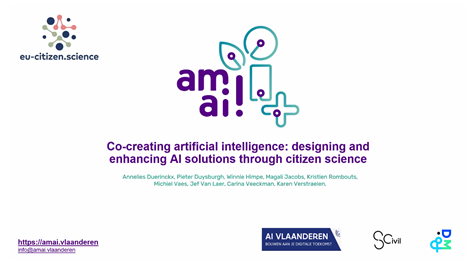At this event, the EU-Citizen.Science platform’s partners showcased the recent development of the project: three training modules and offered the opportunity to meet the trainers who developed them. The final version of the platform and its new features were also presented along with the input presentations from winners of the #MonthOfTheProjects campaign.
Citizen and Societal Engagement: A policy and programme priority for the European Commission
Niamh Delaney from the European Commission opened the online event by introducing citizen science in the European Research Area. Citizen science is embedded in the European research clusters, mainly in Horizon Europe, to promote citizens’ knowledge. Co-creation activities, the more advanced level of citizen science engagement, can involve citizens or end-users directly in developing new knowledge or innovation. Societal engagement of this kind can improve society’s quality, effectiveness, and trust in research and innovation but also be challenging to ensure high-quality practices tailored to the context.
Training module session: pitches and interactive session
EU-Citizen.Sciene contains a wide array of free, self-directed training modules on citizen science on its Moodle page. The themes of the training modules range from introduction to citizen science over research design and methods, engagement and impact to communication and regulations and ethics. At the event, the project partners showcased three of the training modules and offered the opportunity to meet the trainers who developed them.

Alice Sheppard, from UCL’s Extreme Citizen Science, shared her experience on online community building, volunteer engagement, management and care. She integrated her valuable knowledge into a training module which provide useful insight into online citizen science communities for project coordinators and community managers.
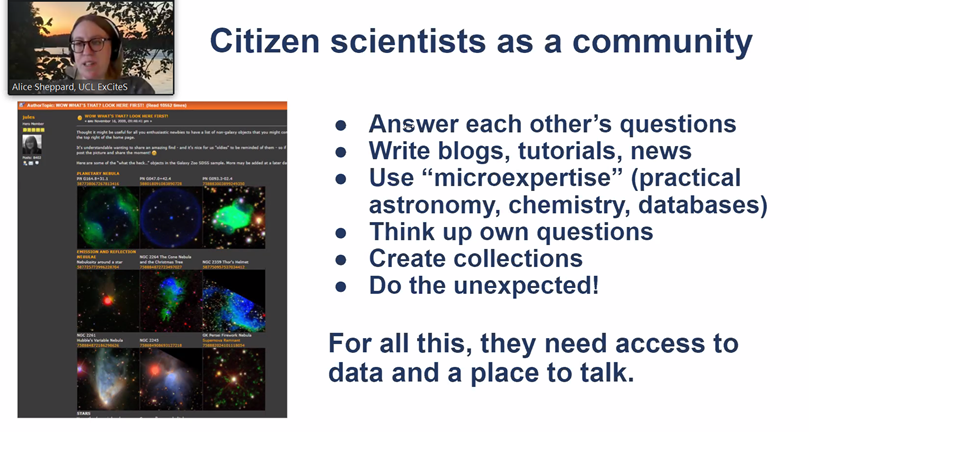
Jessica Wardlaw coordinates the citizen science program at Natural History Museum in London. Her module demonstrates that learning is also social and not exclusively an individualistic process by following pre-prepared materials. The ‘Designing for learning through citizen science’ training modules contain brief quizzes, a description of active citizen science projects, and a list of reading for those who want to look into the literature on citizen science design.
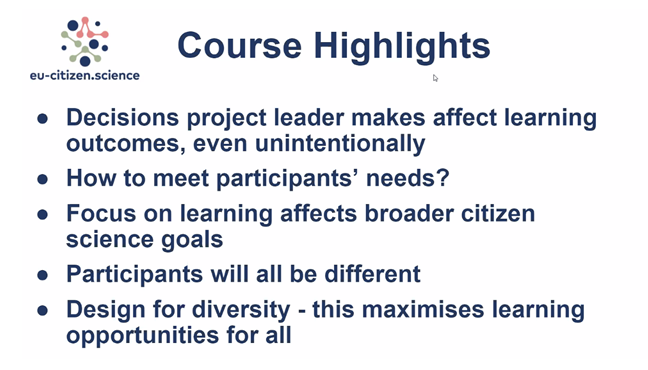
‘Doing citizen science as open science: what, why, and how’ by Pen-Yuan Hsing from the University of Bath was also briefly introduced at the event. Open science is a principle put forward in the past decade to fulfil the social responsibility of science. Sharing data and papers are the basis of open science, but it is a lot more than the course uncovered at length. Open science is a process that citizen science proves well by including non-scientists and rendering research public.
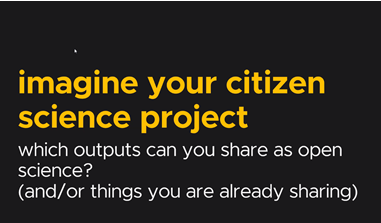
EU-Citizen.Science: introduction to the new features and guided tour of the platform
The project’s partners announced the new design and additional new features of the platform. New projects, resources and training models are available with multi-language options for everybody who is interested in the theory and practice of citizen science. At the platform, professionals, researchers and citizen scientists can create a personal or professional profile to further enlarge their citizen science networks across Europe.

Presentation of the #MonthOfTheProjects winners
Patricia Canto Farachala from Orkestra introduced the YouCount Citizen Social Science project, in which ESSRG is also participating as a project partner. The overarching objective of YouCount is to generate new knowledge and innovations to increase the social inclusion of youth at risk of exclusion across Europe through co-creative youth citizen social science. Overall, YouCount targets two strands of inquiry: 1) knowledge about social inclusion and how to create social change through the involvement of young citizen scientists and 2) contributing to the scientific knowledge base for Y-CSS for increased scaling. This is reflected in the specific objectives below.
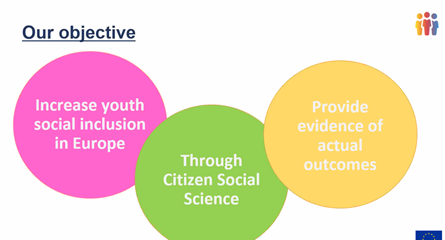
Annelies Duerinckx from SCivil presented the Amai citizen science project. The project is co-creating Artificial Intelligence-based solutions for societal challenges in 4 crucial areas: mobility, environment, health, and work digitalization. Participants aim at creating new possibilities for AI by engaging the general public.
